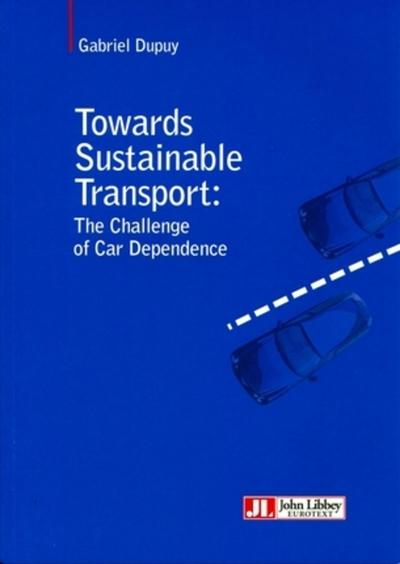- EAN13
- 9782742007936
- Éditeur
- John Libbey
- Date de publication
- 10 février 2011
- Collection
- JOHN LIBBEY
- Nombre de pages
- 66
- Dimensions
- 24 x 17 x 0,4 cm
- Poids
- 170 g
- Langue
- eng
- Langue originale
- fre
Towards Sustainable Transport, The Challenge Of Car Dependance.
Gabriel Dupuy
John Libbey
Prix public : 16,00 €
<p>Since first emerging in the 1990s, the concept of a "dependence" on the motorcar has gradually gained currency among theorists and practitioners. The systematic increase in the number of cars on the roads in many countries of the world has led to a seemingly irreversible situation. These days, however, growing concerns about energy supplies and sustainable development are actually stepping up the pressure to find ways of reversing that trend.</p><p>For some years now, researchers have been striving to analyse the causes of car dependence and to appraise policies and means of action in the light of their findings. They have set out to identify the population groups and zones most affected by the phenomenon; to explore the potential of alternative modes of transport other than the motorcar; to determine the interlinkages between urban development and motor transport; to assess the feasibility and effectiveness of various policies; and to develop likely future scenarios.</p><p>This book takes stock of the work done to date both in France - largely within the framework of the Predit land transport research, experimentation and innovation programme - and in other countries, bringing out the similarities and occasional differences in the results.</p><p>Towards sustainable transport: the challenge of car dependence will be of interest not only to researchers but also to the practitioners in the driving seat of land and transport planning at various geographical scales.</p>


















